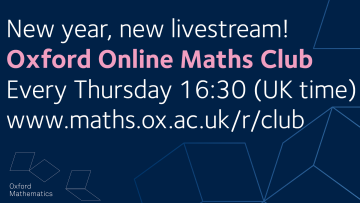Chain complex reduction via fast digraph traversal
Abstract
Reducing a chain complex (whilst preserving its homotopy-type) using algebraic Morse theory ([1, 2, 3]) gives the same end-result as Gaussian elimination, but AMT does it only on certain rows/columns and with several pivots (in all matrices simultaneously). Crucially, instead of doing costly row/column operations on a sparse matrix, it computes traversals of a bipartite digraph. This significantly reduces the running time and memory load (smaller fill-in and coefficient growth of the matrices). However, computing with AMT requires the construction of a valid set of pivots (called a Morse matching).
In [4], we discover a family of Morse matchings on any chain complex of free modules of finite rank. We show that every acyclic matching is a subset of some member of our family, so all maximal Morse matchings are of this type.
Both the input and output of AMT are chain complexes, so the procedure can be used iteratively. When working over a field or a local PID, this process ends in a chain complex with zero matrices, which produces homology. However, even over more general rings, the process often reveals homology, or at least reduces the complex so much that other algorithms can finish the job. Moreover, it also returns homotopy equivalences to the reduced complexes, which reveal the generators of homology and the induced maps $H_{*}(\varphi)$.
We design a new algorithm for reducing a chain complex and implement it in MATHEMATICA. We test that it outperforms other CASs. As a special case, given a sparse matrix over any field, the algorithm offers a new way of computing the rank and a sparse basis of the kernel (or null space), cokernel (or quotient space, or complementary subspace), image, preimage, sum and intersection subspace. It outperforms built-in algorithms in other CASs.
References
[1] M. Jöllenbeck, Algebraic Discrete Morse Theory and Applications to Commutative Algebra, Thesis, (2005).
[2] D.N. Kozlov, Discrete Morse theory for free chain complexes, C. R. Math. 340 (2005), no. 12, 867–872.
[3] E. Sköldberg, Morse theory from an algebraic viewpoint, Trans. Amer. Math. Soc. 358 (2006), no. 1, 115–129.
[4] L. Lampret, Chain complex reduction via fast digraph traversal, arXiv:1903.00783.


